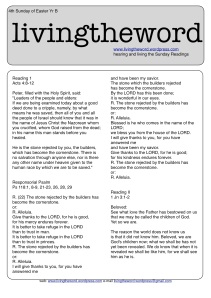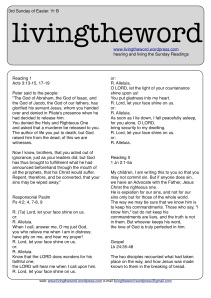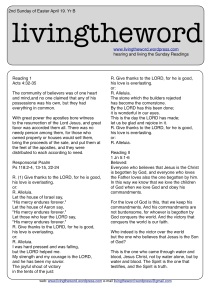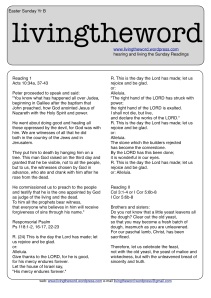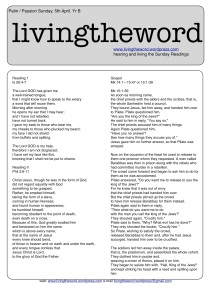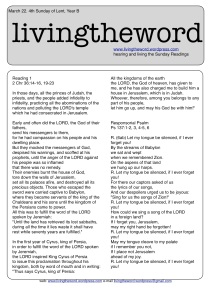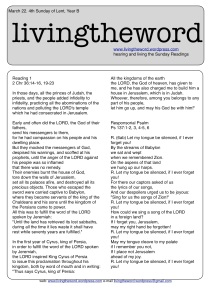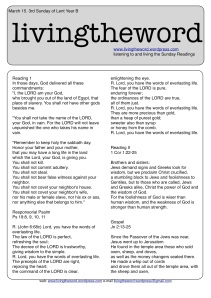Download pdf: 6th Sunday of Easter Yr B
Download doc: 6th Sunday of Easter Yr B
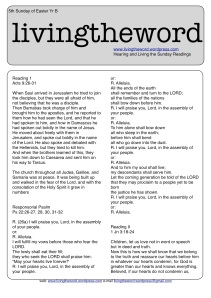 Going Deeper: Open to the spirit?
Going Deeper: Open to the spirit?
Leading up to Pentecost we spend time in pondering the Gospel of the Spirit (the nick-name for the Acts of the Apostles reading). Every year during Easter-tide I spend time reading all of the Acts of the Apostles and I constantly get suprised and inspired by the activity of the Holy Spirit and the profound openess that the disciples have. A few weeks ago we had the story of Philip (Acts 8) waking up and being told to stand out on the road and wait for some instructions. He was then inspired to go up to the cheif treasurer of the Queen of Ethiopia! A modern equivalent would be standing at the lights of a busy intersection and knocking on someone’s window. The story flows on to getting in the car and heading off to a cafe for a chat with baptism being asked for. What if Philip had other plans for his day… his timetable, to do lists etc. How free our early disciples were. The lived for the work of the Holy Spirit.
Peter and Cornelius are further examples today. Both at prayer, both seeking God’s will, both seeking to be completely open for the inspiration of the spirit. With such openess God manages to do profound things, life-changing things, church changing things, history changing things. Being open to the Spirit requires a certain sensitivity to ‘knowing’ what is ‘of the spirit’. It seems to be the most identifiable characteristic of the early disciples in Acts. All the best. Perhaps the best start is to pray to the Holy Spirit for openess and that some suggestions be made startlingly clear. My own Easter-tide experience is to dedicate 30 mins in prayer to ask for the Holy Spirit to come more powerfully into my life and to do whatever the spirit wants to do in me!
See under Resources section for help in beginning some reflective practises. A discernment resource will be added this week.
